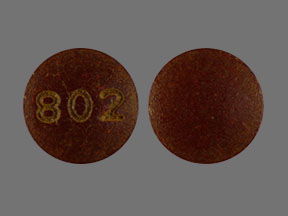
Pyridium Coupons & Savings Card – Discount Prices from $2.00
Brand for: Phenazopyridine
My prescription
Edit
200MG, Phenazopyridine (6 Tablets)
Select pharmacy

CVS
$18.75
COUPON PRICE
Walgreens
$2.00
COUPON PRICE
Walmart
$3.66
COUPON PRICE
Albertsons
$10.03
COUPON PRICEPyridium savings card
Show this card to your pharmacist
Walgreens
$2.00
BIN
ID
PCN
GRP
019876
LHC58D04E5
CHIPPO
LHX
Powered by
More prescriptions for urinary tract infection
More prescriptions for urinary tract infection
Price history for Pyridium (brand) & Phenazopyridine (generic)
6 Tablets, 200MG
Average retail price for Pyridium
Average retail price for Phenazopyridine
Average SaveHealth price for Phenazopyridine
Our price history data is based on aggregated prescription data collected from participating pharmacies in America. Our prescription data updates daily to reflect the latest price changes. If you notice a missing data point, it means there wasn't sufficient data available to generate a monetary value for that date.
Over the last 12 months, the average discount price of Pyridium is $13.47 using the SaveHealth savings card. That's an average savings of 64.26% on Pyridium with our discount card.
*Retail prices are based on pharmacy claims data, and may not be accurate when we don't have enough claims.
Pyridium (Phenazopyridine) dosage forms
Dosage Quantity Price from Per unit 100MG 4 Tablets $2.00 $0.50 100MG 6 Tablets $2.00 $0.33 100MG 8 Tablets $2.00 $0.25 100MG 9 Tablets $2.00 $0.22 100MG 10 Tablets $2.00 $0.20 100MG 12 Tablets $2.00 $0.17 100MG 15 Tablets $2.00 $0.13 100MG 18 Tablets $2.00 $0.11 100MG 20 Tablets $2.00 $0.10 100MG 21 Tablets $2.00 $0.10
| Dosage | Quantity | Price from | Per unit |
|---|---|---|---|
| 100MG | 4 Tablets | $2.00 | $0.50 |
| 100MG | 6 Tablets | $2.00 | $0.33 |
| 100MG | 8 Tablets | $2.00 | $0.25 |
| 100MG | 9 Tablets | $2.00 | $0.22 |
| 100MG | 10 Tablets | $2.00 | $0.20 |
| 100MG | 12 Tablets | $2.00 | $0.17 |
| 100MG | 15 Tablets | $2.00 | $0.13 |
| 100MG | 18 Tablets | $2.00 | $0.11 |
| 100MG | 20 Tablets | $2.00 | $0.10 |
| 100MG | 21 Tablets | $2.00 | $0.10 |
| 100MG | 24 Tablets | $2.00 | $0.08 |
| 100MG | 30 Tablets | $2.00 | $0.07 |
| 100MG | 90 Tablets | $17.22 | $0.19 |
| 100MG | 96 Tablets | $18.68 | $0.20 |
| 100MG | 100 Tablets | $19.35 | $0.19 |
| 100MG | 500 Tablets | $55.50 | $0.11 |
| 200MG | 6 Tablets | $2.00 | $0.33 |
| 200MG | 3 Tablets | $2.00 | $0.67 |
| 200MG | 4 Tablets | $2.00 | $0.50 |
| 200MG | 9 Tablets | $2.00 | $0.22 |
| 200MG | 10 Tablets | $2.00 | $0.20 |
| 200MG | 12 Tablets | $2.00 | $0.17 |
| 200MG | 15 Tablets | $2.00 | $0.13 |
| 200MG | 18 Tablets | $2.00 | $0.11 |
| 200MG | 20 Tablets | $2.00 | $0.10 |
| 200MG | 21 Tablets | $2.00 | $0.10 |
| 200MG | 24 Tablets | $2.00 | $0.08 |
| 200MG | 30 Tablets | $3.52 | $0.12 |
| 200MG | 90 Tablets | $19.91 | $0.22 |
| 200MG | 96 Tablets | $21.07 | $0.22 |
| 200MG | 100 Tablets | $21.84 | $0.22 |
| 200MG | 500 Tablets | $63.80 | $0.13 |
What is Pyridium used to treat?
Pyridium is used to relieve symptoms associated with urinary tract infections, such as pain, burning, and the urgency to urinate. It is not an antibiotic and does not treat the infection itself, but rather helps alleviate the discomfort caused by the irritation of the urinary tract.
Are azo and Pyridium the same thing?
Yes, Azo and Pyridium both contain the active ingredient phenazopyridine, which is used to relieve urinary tract discomfort. They are essentially the same in terms of their active component and function. However, Azo is a brand name that offers over-the-counter products, while Pyridium is often available by prescription.
Is Pyridium hard on kidneys?
Pyridium (phenazopyridine) can potentially be hard on the kidneys, especially in individuals with pre-existing kidney conditions. It is important for patients to use this medication under the guidance of a healthcare provider, who can assess kidney function and determine if it is safe to use. If there are any concerns about kidney health, it is advisable to discuss them with a healthcare professional before starting Pyridium.
When should you not use Pyridium?
Pyridium should not be used in individuals who have a known allergy to phenazopyridine or any of its components. It is also contraindicated in patients with severe kidney disease, as the drug is primarily excreted through the kidneys. Additionally, it should be avoided in individuals with severe liver disease. Pregnant or breastfeeding women should consult a healthcare provider before using Pyridium. It is important to follow a healthcare provider's guidance regarding its use.
What happens to your urine when you take phenazopyridine?
Phenazopyridine can cause the urine to turn a reddish-orange color. This change in color is a common and harmless side effect of the medication. It is important for individuals taking phenazopyridine to be aware of this effect to avoid unnecessary concern.
